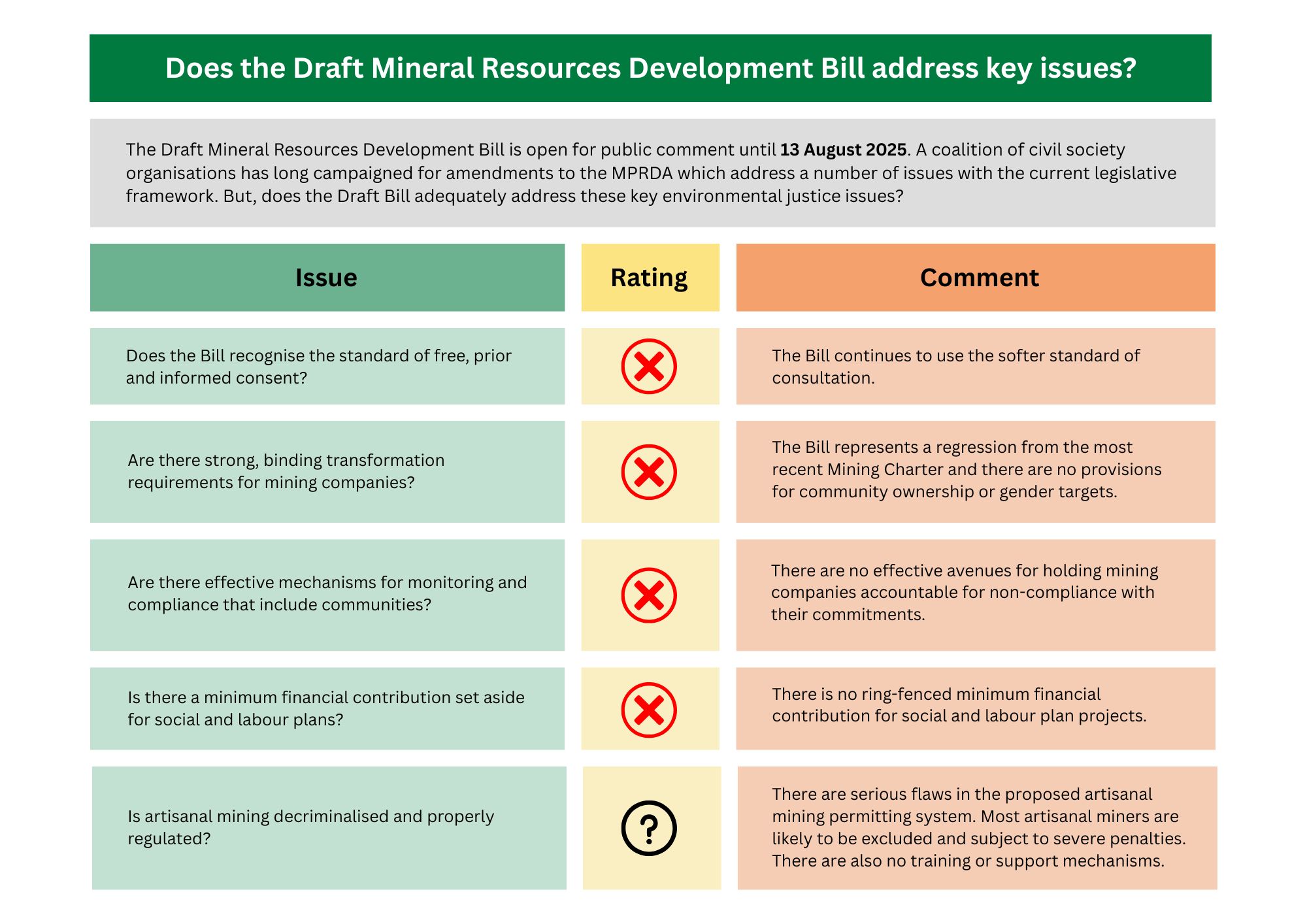CALS comments on Draft Mineral Resources Development Bill
- Lee-Anne Gaertner
CALS welcomes the opportunity to engage on proposed legislation governing mining, but finds the Draft Bill weak on key environmental justice issues
In May this year, the Department of Mineral and Petroleum Resources (DMPR) published the Draft Mineral Resources Development Bill for public comment. Communities, civil society organisations and the South African Human Rights Commission have long called for reforms to the Mineral and Petroleum Resources Development Act (MPRDA) to address key environmental justice issues.
The Centre for Applied Legal Studies (CALS) belongs to a group of organisations which form the MPRDA Coalition. This Coalition includes community networks and civil society organisations whose work focuses on mining and environmental justice. Our organisations have advocated for changes to existing legislation governing mineral resources to ensure that mining benefits those it most impacts: mining-affected communities. Unfortunately, the Bill does not address most of our criticisms of the MPRDA.
The main issues we would like to see addressed in the next draft of the Bill include:
- Free, prior and informed consent: There is no recognition of mining-affected communities’ right mining-affected communities to consent to mining projects on their land, and the Bill continues to use the softer standard of consultation despite judgments affirming this right.
- Transformation requirements: The Bill represents a regression from the most recent Mining Charter in failing to provide for binding transformation regulations and makes no provisions for community ownership or gender targets.
- Monitoring and compliance: There are no effective avenues for communities to hold mining companies accountable for non-compliance with their legal obligations.
- Social and labour plan funding: There is no minimum financial contribution that must be set aside for social and labour plan projects.
- Artisanal mining: There are serious flaws in the proposed artisanal mining permitting system. Most artisanal miners are likely to be excluded and subject to severe penalties. There are no training or support mechanisms. The Bill entrenches the criminalisation and stigmatisation of artisanal miners by the state, which has already led to the state allowing 93 trapped miners to starve to death in Stilfontein.
Read our full comments on the Draft Bill here.

For inquiries, please contact:
- Robert Krause (Acting head: Environmental Justice) at Robert.Krause@wits.ac.za
- Mazi Choshane (Attorney: Environmental Justice) at Mazi.Choshane@wits.ac.za


